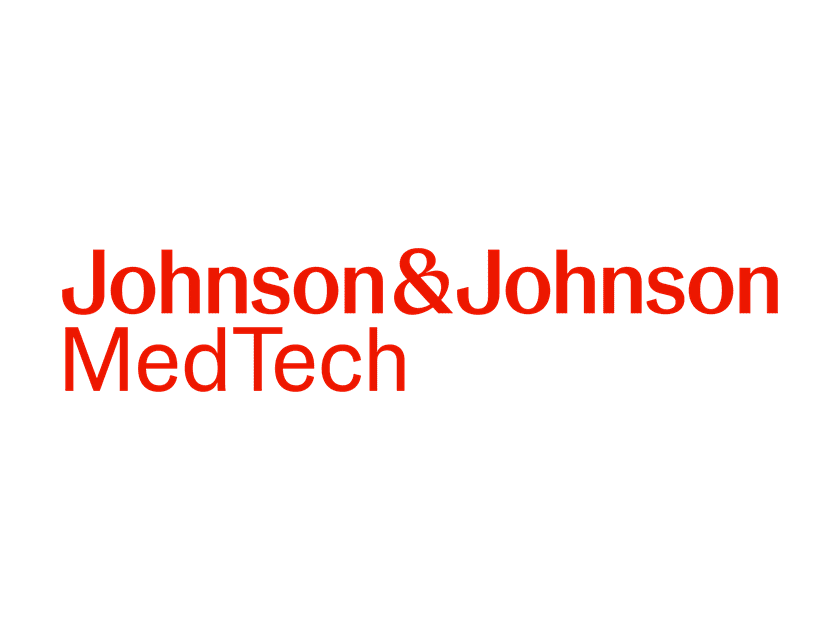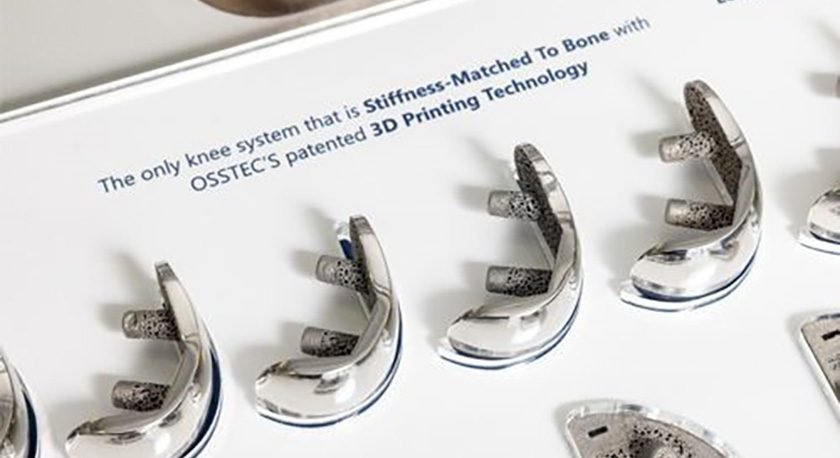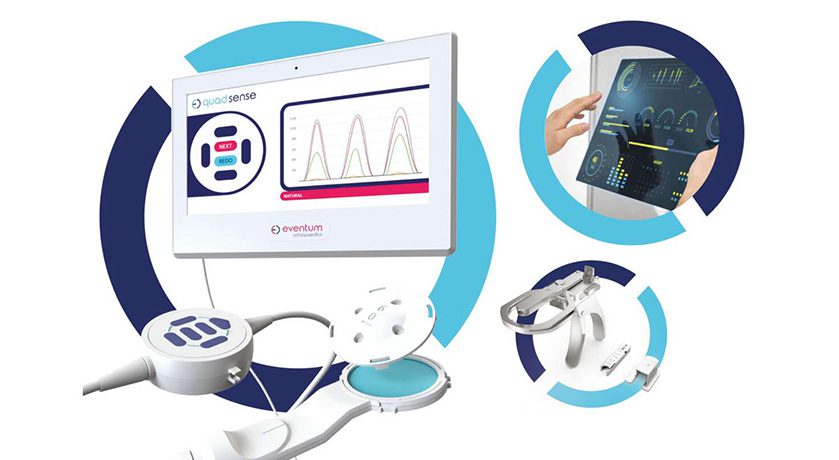

 Copy to clipboard
Copy to clipboard 
Seventeen orthopedic companies have announced the closure of new funding rounds since the end of July, bringing the total announcements we’ve tracked to 28 by mid-September. The number of funding disclosures demonstrates investment interest in orthopedics’ smaller companies and novel technologies even amongst COVID-19s hit on the industry.
Completion of seed series accounted for most investments; though, companies also received grants and loans.
“Funding for musculoskeletal startups remains steady and active. Early-stage funding remains the most selective and challenging, while later-stage growth capital is more robust by comparison,” said Gary Stevenson, Managing Partner, MB Venture Partners. “Strategic investment activity has tapered off considerably, as has strategic M&A activity. Why? There is no question that substantially decreased procedure volume during 2Q20 has impacted investor and strategic appetite.”
At least one company, Augmedics, acknowledged the difficulty in raising money earlier this year. Its employees invested $4 million to close its Series B round. Still, we see the number of closures as a positive sign for the industry.
Of the 25 listed companies, six—7D Surgical, Carlsmed, CurvaFix, Embody, Paragon 28 and Treace Medical—will speak at the virtual Musculoskeletal New Ventures Conference, which will be held over four sessions in October and November.
1. 7D Surgical
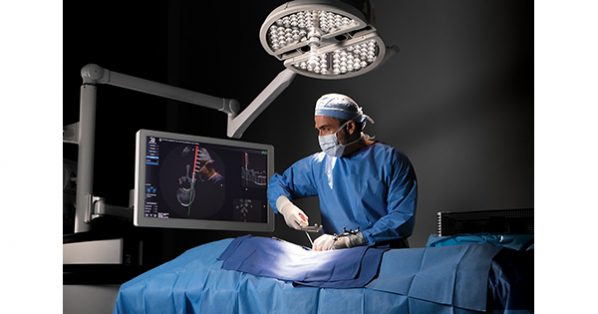
7D Surgical Navigation
Completed a round of financing described as its largest secured to date. The financing will provide 7D with capital to grow existing operations, further develop new products and continue its expansion into international markets.
This investment follows its successful commercialization in the U.S. and recent launch into Southeast Asia. The company also received CE Mark approval for its Machine-vision Image Guided Surgery system for spine procedures. Launch in Europe is slated for later this year.
2. Augmedics
Raised $15 million in Series B financing, $4 million of which was led by its U.S. staff. The company was granted FDA 510(k) clearance at the close of 2019 for the xvision Spine augmented reality guidance system for control and visualization to navigate instruments and implants while looking directly at the patient. xvision launched in 1Q20.
3. Axis Spine
Received £830,000 (~USD $1.0 million) in new funding to bring products to the spine market, with an initial focus on the U.S. The investment will help Axis Spine launch a trial product in the U.S. The company secured FDA clearance in June for the Axis-ALIF.
Axis Spine spent the past three years developing a range of implants. We note that at NASS 2019, the company debuted modular fusion cage technology designed to enable atraumatic insertion featuring in situ sizing with uncoupled height and lordosis and advanced in situ grafting capabilities.
4. Biorez

Biorez BioBrace Implant
Raised $3.5 million in its Series Seed financing, adding to $3.5 million raised previously. Biorez has developed the BioBrace™ implant, a highly porous collagen sponge reinforced with bioresorbable microfilaments. BioBrace is intended to augment and reinforce a range of tendon and ligament procedures, including rotator cuff repair and ACL reconstruction.
5. CartiHeal
Received an additional equity investment of $15 million from Bioventus. CartiHeal is the developer of the Agili™-C implant for the treatment of joint surface lesions in traumatic and osteoarthritic joints.
The investment follows the recently completed enrollment and outcome of interim analysis in CartilHeal’s multinational pivotal Investigational Device Exemption (IDE) study. An additional $5 million can be secured by CartiHeal from Bioventus, if needed, for IDE study completion. Funding will support the completion of patient follow-up in the study and submission of an application for premarket approval to FDA.
Bioventus and CartiHeal have agreed on an option structure under which Bioventus will acquire the company following FDA approval of the Agili-C implant.
6. Carlsmed
Closed an oversubscribed $2.5 million seed round. Carlsmed leverages artificial intelligence and predictive analytics to transform surgical planning processes from 2-D methods to 3-dimensional patient-specific models. The financing will support the clinical launch of the aprevo™ system of proprietary planning tools and personalized implants based on the patient’s pathology.
Last year, Carlsmed merged with Precisive Surgical to develop what it plans to be the industry’s first end-to-end personalized surgical workflow platform.
7. Changmugu Medical/Longwood Valley Medical Technology
Completed a financing round comprising tens of millions of RMB (renminbi). Funds will support research and development of new orthopedic artificial intelligence (AI) and surgical navigation systems, as well as investment in core technologies, an application for local clinical registration, additional employees, etc.
Longwood Valley focuses on solutions that offer AI-assisted diagnosis, individualized surgical planning, 3D-printed surgical guides, surgical navigation, postoperative evaluation, etc. A strategic partner of Johnson & Johnson Medical, the two entities cooperate in the field of orthopedic joint digitization and intelligence, including the development of AI-assisted 3D surgery precision diagnosis and treatment in China.
8. CurvaFix
Completed an oversubscribed Series B private equity financing, totaling $10.75 million. Proceeds will support the completion of the RESTORE Clinical Study and commercialization activities for the CurvaFix® Rodscrew System.
The system is designed for use in minimally invasive procedures in curved bones. The first implant is focused on improving outcomes and simplifying procedures to treat pelvic fractures. The device received FDA 510(k) clearance in 2019 for fixation of pelvic fractures, and is the focus of the RESTORE Study, which is gathering clinical evidence to support potential benefits for pelvic fracture patients in advance of a U.S. commercial launch.
9. DiscGenics
Raised $50 million in Series C funding. This round of funding brings the company to just over $71 million to-date. DiscGenics will use the capital to support ongoing clinical trials of its injectable Discogenic Cell Therapy (IDCT) for lumbar degenerative disc disease, fund future commercialization efforts in the U.S. and Japan as well as scale its allogeneic cell manufacturing facility in Salt Lake City, Utah.
10.-11. Embody
Received $2.5 million Phase II Small Business Innovation Research award through the Defense Advanced Research Projects Agency (DARPA), bringing its total DARPA funding to $14.35 million. The award supports development and clinical assessment of MICROBRACE™ ACL, a stand-alone, off-the-shelf solution designed to immediately restore mechanical stability to the knee joint and gradually remodel over time.
Embody also closed a $9.3 million Series A funding round. Proceeds will support new hires and the commercial 2H20 launch of the Tapestry® collagen-based microfiber implant for Achilles tendon and rotator cuff repairs.
The collagen-based nanofiber graft, formed with electrospinning and microfluidic fabrication techniques, is resorbable and designed to mimic the architecture of the native tendon.
12. ExsoMed
Completed its second round of financing. Proceeds will support surgeon education and upcoming 2020 and early 2021 product launches.
The company’s technologies for hand surgery include INNATE™ for metacarpal fracture fixation and ARCPHIX™ and ARROWPHIX™ for distal interphalangeal joint fusion. The INNATE intramedullary threaded nail recently surpassed the milestone of 5,000 metacarpal fractures treated.
13. Garwood Medical Devices

Garwood Medical BioPrax
Closed a Series C financing round of $4 million to support additional preclinical testing for its BioPrax™ device.
The minimally invasive BioPrax device is in evaluation to help eliminate biofilm infections on prosthetic joints during early-intervention procedures. FDA granted BioPrax Breakthrough Device Designation in 2019. Porcine studies are expected to begin in September 2020, with first in-human studies in the third quarter of 2021.
Garwood’s Series B round closed in late 2019 at $3.7 million. These funds added to a 2016 Series A round, which raised $3.6 million.
14. Gramercy Extremity Orthopedics (GEO)
Entered into a new agreement for a $1 million revolving line of credit. The facility will support working capital and ongoing development of RFID technology, medical devices and software solutions. Earlier this year, GEO launched the cloud-based GEO CONNECT app, supported by RFID technology to manage cases from a mobile device.
15. Histogen
Histogen was awarded a $2 million grant by the U.S. Department of Defense to help fund a Phase I/II clinical trial of HST-003 for regeneration of cartilage in the knee.
Histogen’s human extracellular matrix/hECM is intended for regenerating hyaline cartilage for the treatment of articular cartilage defects with a malleable scaffold that stimulates the body’s own stem cells. Histogen’s HST-003 has demonstrated hyaline cartilage regeneration in three different in vivo animal models.
16. KAHTNU Surgical (formerly Axis360 Surgical)
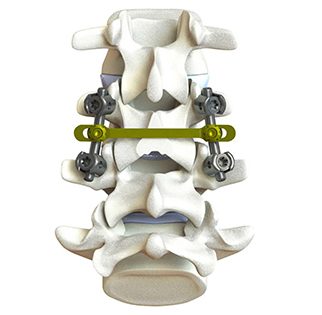
KAHTNU Talkeetna Pedicle Screw
Completed a $2.15 million Series A financing round. Funds will support expansion of worldwide sales and marketing efforts and product development for spine applications.
The company also partnered with United Kingdom-based Ortho Consulting Group to establish KAHTNU Surgical sales channels ex-U.S. KAHTNU’s portfolio includes the KASILOF Cervical Plate, CHENA-C PEEK Spacer and TALKEETNA Pedicle Screw systems.
17. MedShape and Impressio
Awarded a $250,000 Small Business Innovation Research grant to conduct research and development work on a new surgical treatment for hallux rigidus.
The entities seek to create the first arthroplasty device that uses a novel energy-absorbing material developed by Impressio, which is liquid-crystal elastomer (LCE). The resulting metatarsophalangeal implant is intended to replicate the structural and biomechanical function of native cartilage, while also reducing wear. Future applications could treat arthritis in other joints in the foot, hand and knee.
18. Neo Medical
Closed a financing round of CHF 13.2 million (~USD $13.4 million). Funds will support the global growth and expansion of its surgical platform in targeted key markets.
Neo Medical has developed a universal surgical platform with five instruments and fourteen implants that cover most spine indications, including the Neo Pedicle Screw System™. The platform includes a proprietary Controlled-Fixation technology designed to enable a more anatomically neutral, balanced and stable spine.
19. NovoPedics
Awarded a $4.42 million grant by the U.S. Department of Defense to support further preclinical development of MeniscoFix. The grant went to research and development teams at Rutgers University and NovoPedics.
In September, NovoPedics received FDA Breakthrough Device Designation, which will expedite the development and prioritize review of the MeniscoFix™ device. MeniscoFix is a polymer fiber-reinforced scaffold for total meniscus replacement that is designed to be gradually resorbed by the body and be replaced by new tissue. Its patented fiber-reinforced design is similar to the native meniscus. The device is attached to both soft tissue and bone, potentially enabling its use in total meniscus replacement.
20. Ortho Regenerative Technologies
Closed a non-brokered private placement of units with total gross proceeds of $2.47 million. The net proceeds will fund ongoing value creation activities including, securing FDA approval to start U.S. clinical trials for the ORTHO-R rotator cuff repair; manufacturing GMP clinical trial batch for ORTHO-R; starting and completing U.S. clinical trial; securing U.S. exchange listing for company shares.
21. OrthoSpin
Raised $5 million in a Series B financing to support its robotic, digitally enabled external fixation system for orthopedic treatments. Johnson & Johnson Innovation – JJDC led the investment round with parent company Trendlines. The funding will support product development and clinical use of OrthoSpin’s Gen 2 system.
The OrthoSpin system makes pre-programmed adjustments automatically without the need for patient involvement. Integrated software allows physicians to chart patient progress and adjust treatment programs immediately.
22. OssoVR
Osso VR raised $14 million in Series A funding to support its validated Virtual Reality (VR) surgical training platform. This brings their total raised to $16 million.
Osso VR’s platform is used by 20+ teaching hospitals and 11 medical device companies in 20 countries. It offers a high-quality level of visual fidelity for every aspect of surgery.
23. Paragon 28
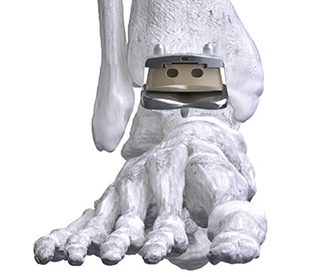
Paragon 28 APEX 3D Total Ankle
Completed an undisclosed Series B financing. Funds will support ongoing initiatives to expand global expansion and develop and launch new products. This includes the APEX 3D™ Total Ankle Replacement that gained FDA 510(k) clearance in July 2020. APEX 3D represents their entry into the total joint replacement market.
24. Proprio
Closed a $23 million Series A financing round. The computational imaging company is developing enhanced visualization systems for precise surgical execution. Proprio will use the financing to expand development teams, accelerate clinical and regulatory timelines, build commercialization capabilities and install the first Proprio systems. The company is presently running pilot programs in neuro and orthopedic surgery.
The Proprio system integrates robotics, artificial intelligence and computer vision to simplify surgical workflow, improve procedural accuracy and reduce exposure to radiation.
25. restor3D
Raised $4.9 million in equity, bringing its total raised to ~$6 million since 2017. The company develops 3D-printed implants, and entered into a development and licensing agreement with SeaSpine in late 2019. The companies will leverage their specialties to develop interbodies for a range of surgical approaches, while driving clinical and economic advantages.
26. Spine Align
Closed a $1.75 million series seed round. Funds will support development and FDA 510(k) clearance for their LiveAlign™ platform in 2021.
LiveAlign leverages image-guided and robotic technologies to augment spine surgery with digital feedback. It enables on-demand, 3D, full-length measurements of a patient’s spine with a 95% reduction in time and an 80% reduction in radiation exposure compared to current x-ray technologies.
27. Treace Medical Concepts
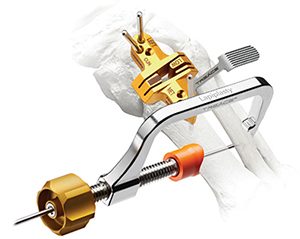
Treace Medical Lapiplasty
Closed on a $50 million non-dilutive term loan agreement. After retiring existing term debt, remaining proceeds will fuel the company’s sales, marketing, product development and clinical programs.
The financing will provide Treace with additional growth capital to support commercialization of its Lapiplasty® System, the first procedure that corrects all three dimensions of bunion deformity and creates durable results for patients through a reproducible procedure for physicians.
28. Viseon
Closed $18 million in Series B financing. Proceeds will support ongoing product development, worldwide regulatory approvals, clinical evaluations, manufacturing scale-up and commercialization for its Viseon visualization and illumination technology for minimally invasive spine surgery.
In February, Viseon noted it was collecting clinical feedback and utility in the U.S. and was assessing international commercialization opportunities; full launch is slated for 2H20.
Julie A. Vetalice is ORTHOWORLD’s Editorial Assistant.
Seventeen orthopedic companies have announced the closure of new funding rounds since the end of July, bringing the total announcements we’ve tracked to 28 by mid-September. The number of funding disclosures demonstrates investment interest in orthopedics’ smaller companies and novel technologies even amongst COVID-19s hit on the industry.
...
Seventeen orthopedic companies have announced the closure of new funding rounds since the end of July, bringing the total announcements we’ve tracked to 28 by mid-September. The number of funding disclosures demonstrates investment interest in orthopedics’ smaller companies and novel technologies even amongst COVID-19s hit on the industry.
Completion of seed series accounted for most investments; though, companies also received grants and loans.
“Funding for musculoskeletal startups remains steady and active. Early-stage funding remains the most selective and challenging, while later-stage growth capital is more robust by comparison,” said Gary Stevenson, Managing Partner, MB Venture Partners. “Strategic investment activity has tapered off considerably, as has strategic M&A activity. Why? There is no question that substantially decreased procedure volume during 2Q20 has impacted investor and strategic appetite.”
At least one company, Augmedics, acknowledged the difficulty in raising money earlier this year. Its employees invested $4 million to close its Series B round. Still, we see the number of closures as a positive sign for the industry.
Of the 25 listed companies, six—7D Surgical, Carlsmed, CurvaFix, Embody, Paragon 28 and Treace Medical—will speak at the virtual Musculoskeletal New Ventures Conference, which will be held over four sessions in October and November.
1. 7D Surgical

7D Surgical Navigation
Completed a round of financing described as its largest secured to date. The financing will provide 7D with capital to grow existing operations, further develop new products and continue its expansion into international markets.
This investment follows its successful commercialization in the U.S. and recent launch into Southeast Asia. The company also received CE Mark approval for its Machine-vision Image Guided Surgery system for spine procedures. Launch in Europe is slated for later this year.
2. Augmedics
Raised $15 million in Series B financing, $4 million of which was led by its U.S. staff. The company was granted FDA 510(k) clearance at the close of 2019 for the xvision Spine augmented reality guidance system for control and visualization to navigate instruments and implants while looking directly at the patient. xvision launched in 1Q20.
3. Axis Spine
Received £830,000 (~USD $1.0 million) in new funding to bring products to the spine market, with an initial focus on the U.S. The investment will help Axis Spine launch a trial product in the U.S. The company secured FDA clearance in June for the Axis-ALIF.
Axis Spine spent the past three years developing a range of implants. We note that at NASS 2019, the company debuted modular fusion cage technology designed to enable atraumatic insertion featuring in situ sizing with uncoupled height and lordosis and advanced in situ grafting capabilities.
4. Biorez

Biorez BioBrace Implant
Raised $3.5 million in its Series Seed financing, adding to $3.5 million raised previously. Biorez has developed the BioBrace™ implant, a highly porous collagen sponge reinforced with bioresorbable microfilaments. BioBrace is intended to augment and reinforce a range of tendon and ligament procedures, including rotator cuff repair and ACL reconstruction.
5. CartiHeal
Received an additional equity investment of $15 million from Bioventus. CartiHeal is the developer of the Agili™-C implant for the treatment of joint surface lesions in traumatic and osteoarthritic joints.
The investment follows the recently completed enrollment and outcome of interim analysis in CartilHeal’s multinational pivotal Investigational Device Exemption (IDE) study. An additional $5 million can be secured by CartiHeal from Bioventus, if needed, for IDE study completion. Funding will support the completion of patient follow-up in the study and submission of an application for premarket approval to FDA.
Bioventus and CartiHeal have agreed on an option structure under which Bioventus will acquire the company following FDA approval of the Agili-C implant.
6. Carlsmed
Closed an oversubscribed $2.5 million seed round. Carlsmed leverages artificial intelligence and predictive analytics to transform surgical planning processes from 2-D methods to 3-dimensional patient-specific models. The financing will support the clinical launch of the aprevo™ system of proprietary planning tools and personalized implants based on the patient’s pathology.
Last year, Carlsmed merged with Precisive Surgical to develop what it plans to be the industry’s first end-to-end personalized surgical workflow platform.
7. Changmugu Medical/Longwood Valley Medical Technology
Completed a financing round comprising tens of millions of RMB (renminbi). Funds will support research and development of new orthopedic artificial intelligence (AI) and surgical navigation systems, as well as investment in core technologies, an application for local clinical registration, additional employees, etc.
Longwood Valley focuses on solutions that offer AI-assisted diagnosis, individualized surgical planning, 3D-printed surgical guides, surgical navigation, postoperative evaluation, etc. A strategic partner of Johnson & Johnson Medical, the two entities cooperate in the field of orthopedic joint digitization and intelligence, including the development of AI-assisted 3D surgery precision diagnosis and treatment in China.
8. CurvaFix
Completed an oversubscribed Series B private equity financing, totaling $10.75 million. Proceeds will support the completion of the RESTORE Clinical Study and commercialization activities for the CurvaFix® Rodscrew System.
The system is designed for use in minimally invasive procedures in curved bones. The first implant is focused on improving outcomes and simplifying procedures to treat pelvic fractures. The device received FDA 510(k) clearance in 2019 for fixation of pelvic fractures, and is the focus of the RESTORE Study, which is gathering clinical evidence to support potential benefits for pelvic fracture patients in advance of a U.S. commercial launch.
9. DiscGenics
Raised $50 million in Series C funding. This round of funding brings the company to just over $71 million to-date. DiscGenics will use the capital to support ongoing clinical trials of its injectable Discogenic Cell Therapy (IDCT) for lumbar degenerative disc disease, fund future commercialization efforts in the U.S. and Japan as well as scale its allogeneic cell manufacturing facility in Salt Lake City, Utah.
10.-11. Embody
Received $2.5 million Phase II Small Business Innovation Research award through the Defense Advanced Research Projects Agency (DARPA), bringing its total DARPA funding to $14.35 million. The award supports development and clinical assessment of MICROBRACE™ ACL, a stand-alone, off-the-shelf solution designed to immediately restore mechanical stability to the knee joint and gradually remodel over time.
Embody also closed a $9.3 million Series A funding round. Proceeds will support new hires and the commercial 2H20 launch of the Tapestry® collagen-based microfiber implant for Achilles tendon and rotator cuff repairs.
The collagen-based nanofiber graft, formed with electrospinning and microfluidic fabrication techniques, is resorbable and designed to mimic the architecture of the native tendon.
12. ExsoMed
Completed its second round of financing. Proceeds will support surgeon education and upcoming 2020 and early 2021 product launches.
The company’s technologies for hand surgery include INNATE™ for metacarpal fracture fixation and ARCPHIX™ and ARROWPHIX™ for distal interphalangeal joint fusion. The INNATE intramedullary threaded nail recently surpassed the milestone of 5,000 metacarpal fractures treated.
13. Garwood Medical Devices

Garwood Medical BioPrax
Closed a Series C financing round of $4 million to support additional preclinical testing for its BioPrax™ device.
The minimally invasive BioPrax device is in evaluation to help eliminate biofilm infections on prosthetic joints during early-intervention procedures. FDA granted BioPrax Breakthrough Device Designation in 2019. Porcine studies are expected to begin in September 2020, with first in-human studies in the third quarter of 2021.
Garwood’s Series B round closed in late 2019 at $3.7 million. These funds added to a 2016 Series A round, which raised $3.6 million.
14. Gramercy Extremity Orthopedics (GEO)
Entered into a new agreement for a $1 million revolving line of credit. The facility will support working capital and ongoing development of RFID technology, medical devices and software solutions. Earlier this year, GEO launched the cloud-based GEO CONNECT app, supported by RFID technology to manage cases from a mobile device.
15. Histogen
Histogen was awarded a $2 million grant by the U.S. Department of Defense to help fund a Phase I/II clinical trial of HST-003 for regeneration of cartilage in the knee.
Histogen’s human extracellular matrix/hECM is intended for regenerating hyaline cartilage for the treatment of articular cartilage defects with a malleable scaffold that stimulates the body’s own stem cells. Histogen’s HST-003 has demonstrated hyaline cartilage regeneration in three different in vivo animal models.
16. KAHTNU Surgical (formerly Axis360 Surgical)

KAHTNU Talkeetna Pedicle Screw
Completed a $2.15 million Series A financing round. Funds will support expansion of worldwide sales and marketing efforts and product development for spine applications.
The company also partnered with United Kingdom-based Ortho Consulting Group to establish KAHTNU Surgical sales channels ex-U.S. KAHTNU’s portfolio includes the KASILOF Cervical Plate, CHENA-C PEEK Spacer and TALKEETNA Pedicle Screw systems.
17. MedShape and Impressio
Awarded a $250,000 Small Business Innovation Research grant to conduct research and development work on a new surgical treatment for hallux rigidus.
The entities seek to create the first arthroplasty device that uses a novel energy-absorbing material developed by Impressio, which is liquid-crystal elastomer (LCE). The resulting metatarsophalangeal implant is intended to replicate the structural and biomechanical function of native cartilage, while also reducing wear. Future applications could treat arthritis in other joints in the foot, hand and knee.
18. Neo Medical
Closed a financing round of CHF 13.2 million (~USD $13.4 million). Funds will support the global growth and expansion of its surgical platform in targeted key markets.
Neo Medical has developed a universal surgical platform with five instruments and fourteen implants that cover most spine indications, including the Neo Pedicle Screw System™. The platform includes a proprietary Controlled-Fixation technology designed to enable a more anatomically neutral, balanced and stable spine.
19. NovoPedics
Awarded a $4.42 million grant by the U.S. Department of Defense to support further preclinical development of MeniscoFix. The grant went to research and development teams at Rutgers University and NovoPedics.
In September, NovoPedics received FDA Breakthrough Device Designation, which will expedite the development and prioritize review of the MeniscoFix™ device. MeniscoFix is a polymer fiber-reinforced scaffold for total meniscus replacement that is designed to be gradually resorbed by the body and be replaced by new tissue. Its patented fiber-reinforced design is similar to the native meniscus. The device is attached to both soft tissue and bone, potentially enabling its use in total meniscus replacement.
20. Ortho Regenerative Technologies
Closed a non-brokered private placement of units with total gross proceeds of $2.47 million. The net proceeds will fund ongoing value creation activities including, securing FDA approval to start U.S. clinical trials for the ORTHO-R rotator cuff repair; manufacturing GMP clinical trial batch for ORTHO-R; starting and completing U.S. clinical trial; securing U.S. exchange listing for company shares.
21. OrthoSpin
Raised $5 million in a Series B financing to support its robotic, digitally enabled external fixation system for orthopedic treatments. Johnson & Johnson Innovation – JJDC led the investment round with parent company Trendlines. The funding will support product development and clinical use of OrthoSpin’s Gen 2 system.
The OrthoSpin system makes pre-programmed adjustments automatically without the need for patient involvement. Integrated software allows physicians to chart patient progress and adjust treatment programs immediately.
22. OssoVR
Osso VR raised $14 million in Series A funding to support its validated Virtual Reality (VR) surgical training platform. This brings their total raised to $16 million.
Osso VR’s platform is used by 20+ teaching hospitals and 11 medical device companies in 20 countries. It offers a high-quality level of visual fidelity for every aspect of surgery.
23. Paragon 28

Paragon 28 APEX 3D Total Ankle
Completed an undisclosed Series B financing. Funds will support ongoing initiatives to expand global expansion and develop and launch new products. This includes the APEX 3D™ Total Ankle Replacement that gained FDA 510(k) clearance in July 2020. APEX 3D represents their entry into the total joint replacement market.
24. Proprio
Closed a $23 million Series A financing round. The computational imaging company is developing enhanced visualization systems for precise surgical execution. Proprio will use the financing to expand development teams, accelerate clinical and regulatory timelines, build commercialization capabilities and install the first Proprio systems. The company is presently running pilot programs in neuro and orthopedic surgery.
The Proprio system integrates robotics, artificial intelligence and computer vision to simplify surgical workflow, improve procedural accuracy and reduce exposure to radiation.
25. restor3D
Raised $4.9 million in equity, bringing its total raised to ~$6 million since 2017. The company develops 3D-printed implants, and entered into a development and licensing agreement with SeaSpine in late 2019. The companies will leverage their specialties to develop interbodies for a range of surgical approaches, while driving clinical and economic advantages.
26. Spine Align
Closed a $1.75 million series seed round. Funds will support development and FDA 510(k) clearance for their LiveAlign™ platform in 2021.
LiveAlign leverages image-guided and robotic technologies to augment spine surgery with digital feedback. It enables on-demand, 3D, full-length measurements of a patient’s spine with a 95% reduction in time and an 80% reduction in radiation exposure compared to current x-ray technologies.
27. Treace Medical Concepts

Treace Medical Lapiplasty
Closed on a $50 million non-dilutive term loan agreement. After retiring existing term debt, remaining proceeds will fuel the company’s sales, marketing, product development and clinical programs.
The financing will provide Treace with additional growth capital to support commercialization of its Lapiplasty® System, the first procedure that corrects all three dimensions of bunion deformity and creates durable results for patients through a reproducible procedure for physicians.
28. Viseon
Closed $18 million in Series B financing. Proceeds will support ongoing product development, worldwide regulatory approvals, clinical evaluations, manufacturing scale-up and commercialization for its Viseon visualization and illumination technology for minimally invasive spine surgery.
In February, Viseon noted it was collecting clinical feedback and utility in the U.S. and was assessing international commercialization opportunities; full launch is slated for 2H20.
Julie A. Vetalice is ORTHOWORLD’s Editorial Assistant.

You are out of free articles for this month
Subscribe as a Guest for $0 and unlock a total of 5 articles per month.
You are out of five articles for this month
Subscribe as an Executive Member for access to unlimited articles, THE ORTHOPAEDIC INDUSTRY ANNUAL REPORT and more.
JV
Julie Vetalice is ORTHOWORLD's Editorial Assistant. She has covered the orthopedic industry for over 20 years, having joined the company in 1999.


